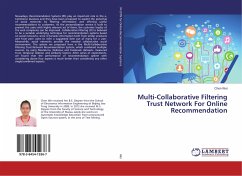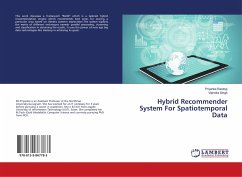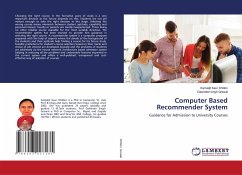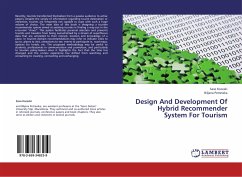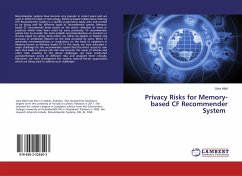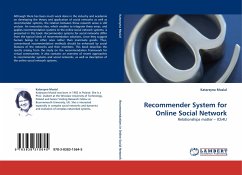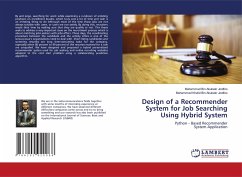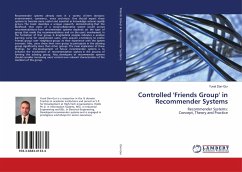
Collaborative Recommender Agents
State-of-the-art and new techniques
Versandkostenfrei!
Versandfertig in 6-10 Tagen
52,99 €
inkl. MwSt.

PAYBACK Punkte
26 °P sammeln!
This thesis focusses on the study of AI techniques which improve the performance of recommender systems. Initially, a detailed analysis of the current state- of-the-art in this field has been carried out. This work has been organised as a taxonomy where existing recommender systems on the Internet are classified. Secondly, this thesis proposes a new CBR approach to recommendation. CBR is suitable for recommender systems due to its being based on experience and human reasoning. A forgetting mechanism is also proposed for case-based profiles that controls the relevance and age of past experience...
This thesis focusses on the study of AI techniques which improve the performance of recommender systems. Initially, a detailed analysis of the current state- of-the-art in this field has been carried out. This work has been organised as a taxonomy where existing recommender systems on the Internet are classified. Secondly, this thesis proposes a new CBR approach to recommendation. CBR is suitable for recommender systems due to its being based on experience and human reasoning. A forgetting mechanism is also proposed for case-based profiles that controls the relevance and age of past experiences. Thirdly, this thesis proposes the agentification of recommender systems in order to take advantage of interesting agent properties such as proactivity, encapsulation or social ability. Collaboration among agents is performed with the opinion-based filtering method and the collaborative filtering method through trust. Both are based on a social model of trust making agents less vulnerable to others while collaborating. Finally, this thesis also proposes an evaluation procedure for recommender systems that allows a scientific discussion of the results.



